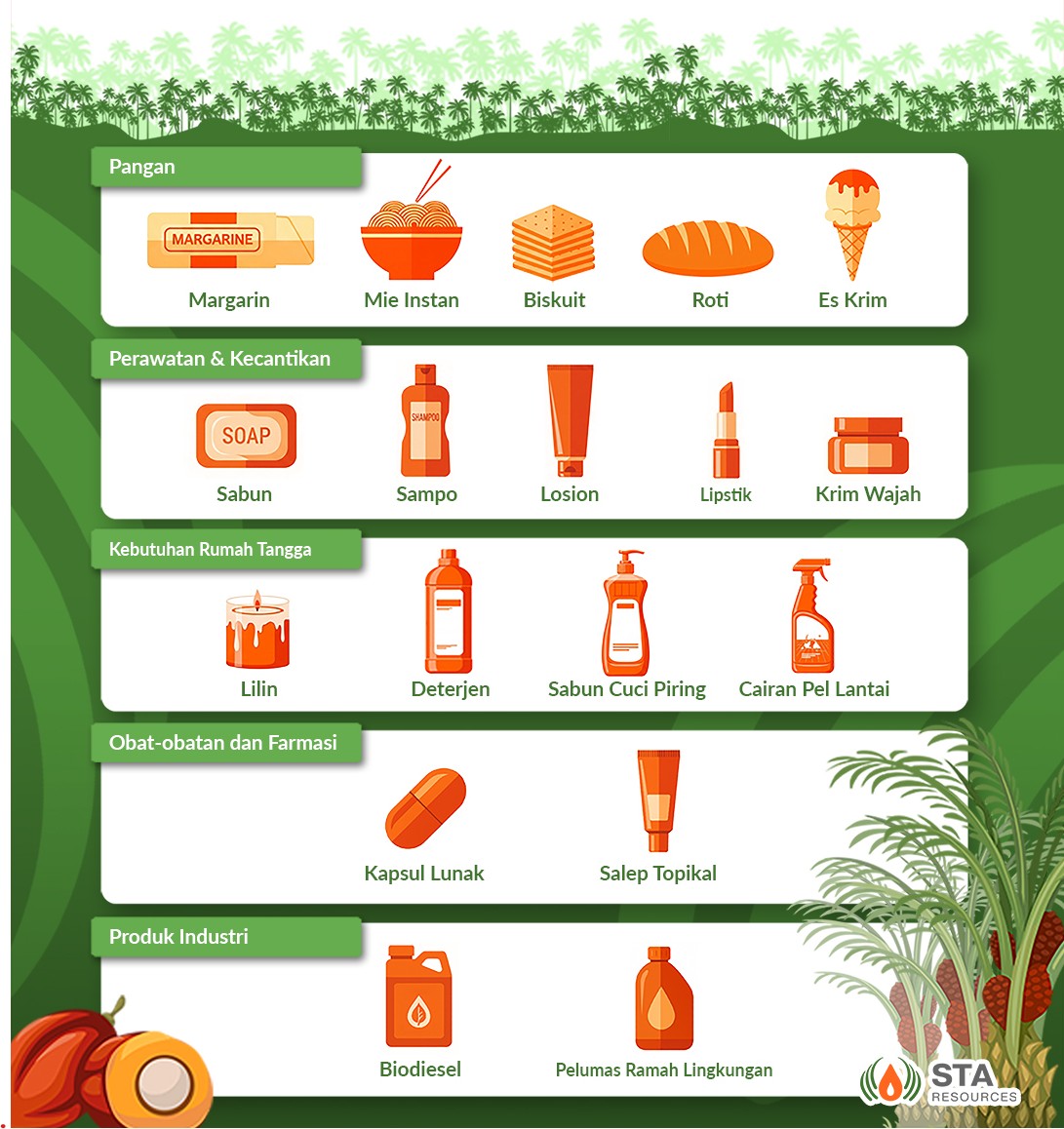The Potential of Palm Oil Derivatives in the Modern Industrial Value Chain
As one of the world’s most productive agricultural commodities, palm oil yields not only crude oil but also a wide range of high-value derivatives that play a crucial role across industries— ranging from food and chemicals to energy and manufacturing. The downstream processing of palm oil involves a series of technical stages that transform raw materials into more complex and industrially applicable inputs.
At PT Sumber Tani Agung Resources Tbk (STAA), the development of palm oil derivatives forms an integral part of our long-term strategy to strengthen value chains, enhance industrial efficiency, and make a significant contribution to national economic development.
From CPO and PKO to Value-Added Products
Palm oil yields two primary types of oils:
• CPO (Crude Palm Oil), extracted from the mesocarp of the palm fruit;
• PKO (Palm Kernel Oil), extracted from the kernel or seed of the fruit.
CPO is further processed into RBDPO (Refined, Bleached, and Deodorized Palm Oil) through a refinery process. Both RBDPO and PKO serve as base materials for a wide range of derivative products, depending on further processing such as fractionation, hydrogenation, methanolysis, or esterification.
Categories of Palm Derivatives and Their Applications
1. Food-Grade Products
• RBD Olein: widely used in household and industrial cooking oil.
• RBD Stearin: a solid fat used in margarine, shortening, and other bakery fats.
• PKO: a base ingredient in processed foods such as creamers, chocolates, and ice cream.
These products are characterized by high thermal and oxidative stability, making them suitable for large-scale and long-lasting food applications.
2. Oleochemical Derivatives
• Derivatives such as fatty acids, fatty alcohols, and palm-based esters are used in soaps, cosmetics, personal care items, industrial lubricants, and emulsifiers.
• Glycerin, a byproduct of triglyceride separation, is widely applied in the pharmaceutical and food chemical industries.
Palm-based oleochemicals offer the advantage of being renewable and biodegradable, making them ideal alternatives to petrochemical-based inputs in various industrial sectors.
3. Energy and Biofuels
Palm Methyl Ester (PME) is a key component in biodiesel formulations. Palm Oil Mill Effluent (POME) is being developed into a source of biogas and renewable electricity. These energy products contribute to national energy transition initiatives while reducing reliance on fossil fuels.
The Strategic Importance of Palm Oil Downstream Processing
Downstream integration significantly enhances the economic value of palm products and strengthens Indonesia’s position in the global supply chain. The diversification of palm oil derivatives offers opportunities to:
• Increase non-CPO export contributions,
• Generate employment for skilled labor in downstream industries,
• Foster cross-sector collaboration with the chemical, energy, and FMCG industries.
STAA’s Commitment to Sustainable Palm Derivative Development
STAA manages its value chain comprehensively—from plantations to downstream products. We continue to enhance our capabilities through:
• Investment in refining and fractionation facilities,
• Innovation in extraction and conversion efficiency,
• Full compliance with environmental regulations and both national and international sustainability certifications.
We believe that the palm oil industry must be part of the solution to today’s environmental, economic, and social challenges.
Moving Forward
Palm oil derivatives are a strategic component of modern industrial systems. Through a science- and technology-driven approach, the full potential of palm oil can be unlocked to deliver high quality, globally relevant products—without compromising sustainability.

